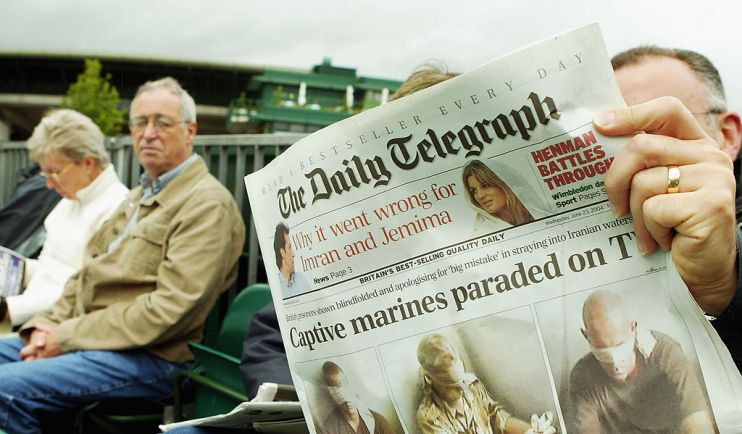The Notebook: Ian Whittaker is sceptical about AI – plus his take on the Telegraph takeover

The Notebook is a column where interesting people say interesting things. Today, it’s Ian Whittaker, media analyst and founder of Liberty Sky Advisors
Is AI’s biggest benefit its use as a buzzword?
BT announced last month it is cutting up to 55,000 jobs as it restructures and stream lines its business. What particularly caught the eye of many was the statement that 10,000 of these jobs would be replaced by Artificial Intelligence (AI), fuelling the fears of those who see AI as a potential job destroyer.
The naysayers may be right but not for the reasons they think. Where probably the greatest risk from AI lies is not in which jobs it replaces, but how companies use the term to boost their share price.
My own view on AI is on the sceptical side of the equation. For a start, AI’s progress in the military – not for lack of trying – has been incredibly slow. There are also plenty of other practical questions as well. The available technology, particularly in semiconductors, is a hot topic at the moment given China’s threats to Taiwan.
There is then also the cost and whether the private equity and venture capital markets – where access to capital has been reduced significantly – can truly fund innovative AI research outside Microsoft and Google. However, companies, and the financial markets in general, are never slow to jump on a bandwagon and AI seems the latest version in town.
BT’s announcement should raise a number of immediate practical questions. If nobody knows the future direction of AI, which seems true, how does BT have the strategic insight to claim which jobs it can cut? Do we know whether AI is robust enough to deal with humans? Is there a risk that BT is locking itself into a strategy that may soon seem outdated?
Yet many companies are unlikely to care. If your company is under pressure, AI can seem like a nice phrase – like the Metaverse was a year ago – to chuck into a statement to please analysts and investors. The Metaverse example has aged like milk yet it arguably got a few companies through awkward questions about their strategic direction. Long-term trends are good for that.
So I would be wary of those who see AI as a major treatment for their ills. It is early days and nobody knows where things will go.
US election
Anecdotally, advertising spending for the 2024 US electoral cycle – which includes presidential and congressional elections – is already starting to take off, which is much earlier than usually happens.
That is a good sign for the US advertising market over the next 12 months, but it does raise questions about what next year’s elections will look like, especially – as of today – we are gearing up for a re-run of 2020’s Biden v Trump. Round 2 everyone.
UK media
Anyone reading the UK media over the past month would have thought that the most important topic du jour was not the Ukraine-Russia conflict, rising interest rates or stubborn inflation but the saga of ‘Holly and Phil’ (or should that be ‘Phil and Holly’?).
May I make a plea to end the endless discussion right now? Given the entry of a number of ‘celebs’ into the debate, the whole episode is starting to resemble a brawl at the Dog and Duck at closing time on a Friday night – and it’s about as edifying.
The Black Pound Report
I mentioned last time I run a series of podcasts with outdoor company JC Decaux UK. One of my recent interviews was with Lydia Amoah, founder of the Black Pound Report, which informs and persuades advertisers of the potential in the multi-ethnic consumer market.
Lydia’s approach is very clear – there is a huge opportunity, financially, for companies to benefit from the market, and many companies are missing out on these opportunities because they are not targeting the market correctly.
While the moral case is already well-established, Lydia presents the economic and financial side. Well worth a listen.
Read all about it
The future of the Daily Telegraph, put up for sale after its owners fell out with Lloyds over debt, is now an open question. Who might be interested? It’s unlikely that either Reach or News UK would go for the Telegraph, so of the big media groups, DMGT looks the most obvious potential buyer.
Don’t rule out a trophy purchase, though. Newspapers are both businesses, and – to some – valuable assets.
